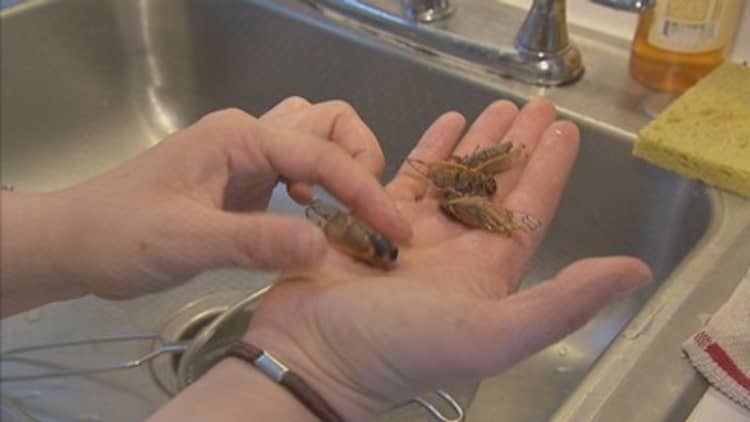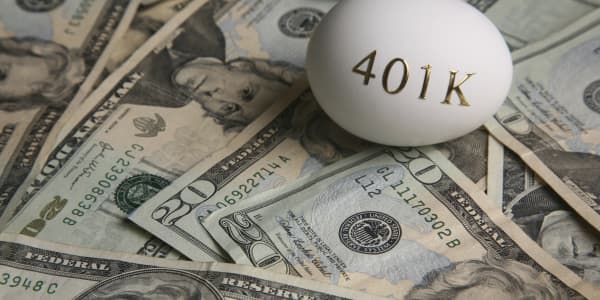
Cricket: it's what's for dinner.
Social entrepreneurship, the creation of new ventures with a social purpose, takes many forms, from clean energy start-ups to initiatives aimed at improving early education. Several new social ventures are taking a different tack and hoping to push along a nascent trend, promoting the eating of insects as good for the planet and for people.
"There's no question insects are the most environmentally sustainable way to eat meat," said Laura D'Asaro, a co-founder of Six Foods, a new venture formed to make food from insects.
D'Asaro ate her first insects—fried caterpillars and termites—in Tanzania, and says she loved the taste immediately. "They're very high in vitamins and minerals. Four crickets have as much calcium as a glass of milk, and more iron per gram than beef. The potential is huge."
Insects have been eaten in various parts of the world for centuries. A United Nations report on edible insects issued in 2013 pointed to estimates that "insects form part of the traditional diets of at least 2 billion people." But people in Western countries have not exactly embraced this culinary tradition.
"It is safe to say that most are reluctant to even consider eating insects and, moreover, that they perceive the practice to be associated with primitive behaviour," the report concluded glumly.
(View more: Get ready to eat...insects)
With the world population expanding, however, Westerners may be persuaded to reconsider their aversion to six-legged creatures. For one thing, they require much less feed to produce meat. "Crickets are twice as efficient in converting feed to meat as chicken, at least four times more efficient than pigs, and 12 times more efficient than cattle," the U.N. report found.
Insects are even more efficient when it comes to water consumption, and they produce far fewer greenhouse gas emissions than livestock. As for body fat, forget it. A cricket is about 60 percent protein, according to Rose Wang, a co-founder of Six Foods. That's leaner than a CrossFit addict.
(Read more: New Zealand lamb goes to pot in China)
The Clinton Global Initiative has taken notice. That organization partners with Hult International Business School to administer the annual $1 million Hult Prize, which starts with a challenge to college and graduate students to develop solutions to a global issue.
In 2013 the challenge involved sustainable food, and the winning team, from McGill University's Desautels MBA program, offered up a plan to promote better insect farming practices for insect consumption in developing countries.
"By growing, processing, and selling edible insects, Aspire Food Group (The McGill Hult Team) will empower urban slum communities, offering them better access to an efficient, sustainable source of protein and nutrients," the team says on its website.
(Read more: )

Other entrepreneurs are producing flour and other insect products for human consumption. "Recipe Ready Mealworms – $12/100g BACK IN STOCK!" blares the website of World Entomophagy, a start-up created by a group of University of Georgia graduates aiming to drive the growth of the edible insect industry.
Little Herds, a nonprofit in Austin Texas, aims to educate that community about the environmental and health benefits of eating bugs. Its founder, Robert Nathan Allen, is also involved with World Entomophagy.
Insects are an acquired taste, no doubt. But to hear these entrepreneurs tell it, once consumers get past their assumptions about eating bugs, they will find a tasty new food source.
They may be right. Six Foods, for one, makes "chocolate chirp cookies" to serve at events where team members are promoting their venture. (Their first product, though, will be a savory "chirp.") At a recent U.N. conference, the cookies were passed around the room—and audience members clamored for seconds.
—By Kelley Holland, Special to CNBC. Follow her on Twitter @KKelleyHolland.





